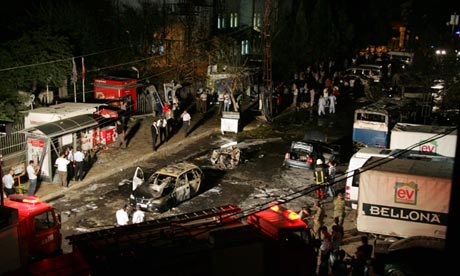CAIRO: An appeal for the retrial of activist Amr El-Beheiry was accepted on Tuesday after tens of supporters took to the streets of Downtown on Monday night in a solidarity march to call for justice in his appeal.
“The verdict came to accept the appeal and refer him to a ‘first degree’ court,” said Ahmed El-Esh, who works with the ‘No To Military Trials’ campaign, explaining that ‘first degree’ meant a complete retrial of the case since the original verdict on Feb. 26.
El-Beheiry, who had been previously refused two appeals, was the first civilian tried in a military court and sentenced to five years in prison following a hasty hearing.
El-Esh said that through the course of the retrial, the assault charge could be dropped, while the violation of curfew could be shortened to six months, of which El-Beheiry had already spent 10 in military prison.
One of the testimonies in his defense was provided on Feb. 26 by prominent activist and university professor Laila Soueif.
According to Soueif’s account, El-Beheiry was arrested when military police violently dispersed a sit-in in front of the People’s Assembly earlier that night. He was seriously injured from beating.
Alaa Abdel Fattah, prominent activist and blogger, said “We’re going on with this march [because] Amr El-Beheiry symbolically represents the whole military trials issue, since he was the first to be tried.”
The march organized by the “No to Military Trials” campaign from Tahrir to the Supreme Court briefly overlapped with another protest in Talaat Harb Square, which rallied for a similar demand: the release of what are known as the “April 8 Army Officers”.
Both marches stopped at Talaat Harb Square where videos of military brutality were boisterously displayed amid much chanting.
The chants rebuked the Supreme Council of the Armed Forces (SCAF) and its head, Field Marshal Hussein Tantawi, for their heavy-handed treatment of protestors and army officers who took to the streets on April 8 to protest the procrastination of the deposed president’s trial.
The officers were taken into custody after April 8, May 27 and Nov. 19, according to Aya Nabil, coordinator for the Defenders of the April 8 Officers.
According to Ahmed Abdel-Hamid, Captain Hassan Abdel-Hamid, who was sentenced to one year after his arrest on April 8 and was released early, 22 army officers were detained on April 8 and four on Nov. 19.
Of the 22, 16 were sentenced to three years, five to two and his brother Hassan Abdel-Hamid was the only one to receive one year.
There is no information about the fate of the four arrested after Nov. 19.
Families of the April 8 officers swarmed around the Talaat Harb statue at the square’s center, insisting that their detained family members spoke the truth when it was most required.
Ahmed Abdel-Hamid said that legal action towards his brother only began to take shape when the generals started to sense that the army was beginning to split. “We asked the Field Marshal to pardon them,” he added.
Hoda Naguib, mother of Mohamed Tarek Wadie who was also detained after April 8, told DNE that not all of the officers arrested that day were dressed in military uniform, including her own son.
According to her story, she and her son went downtown that Friday to visit relatives near Tahrir, after which he later visited the square to say hello to fellow officers who were on duty.
Wadie was then arrested from his home after midnight at 1 am by the military.
Naguib spoke in disbelief about the military police playing a phone call they had tapped between her and her son during his hearing. The call was allegedly used against the plaintiff.
“I only asked him, ‘do you have your uniform?’” She said she did not mean his military uniform, but a suit. Later in the day, he was arrested.
Wadie’s mother then said he was held in custody at an unknown location for over 50 days, after which he received a 10 year sentence by a military tribunal.
When she eventually met Tantawy to plead her son’s case, Naguib said he told her this was just a “pinch in the ear” and that he would be released soon.
The sentence was later shortened to 3 years in military prison.

